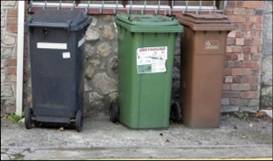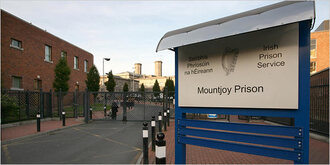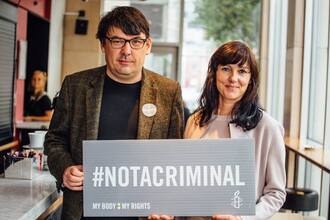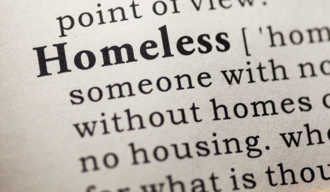- Featured
- Animal Rights
- Anti-racism
- Arts & Culture
- Children
- Climate
- Corporate accountability
- Crime
- Disability rights
- Economic
- Education
- Environment
- Food and Sustainable Production
- Gender Equality
- Governance and Transparency
- Health
- Housing
- LGBT Rights
- Mental health
- Northern Ireland
- Planning
- Privacy and Data Protection
- Rural Inequality
- Social Justice
- Trade
- Transport and Infrastructure
- Workers' Rights
- More
-
Support a referendum to stop water privatisationA decision is imminent on the Bill to insert into the Constitution an amendment which would rule out any future privatisation of water, or water services. Forty TDs have signed the Bill including Independents4Change, Sinn Fein, AAA/PBP and a number of independent TD’s. A number of others including the Green Party, the Labour Party and the Social Democrats have said publicly that they would support a referendum on public ownership of our water, so the Bill has a real chance of passing. However, this Bill will only pass if supported by Fianna Fail. We are calling on all TD's to prove they oppose water privatisation by supporting the Bill. At this very moment in time, any government, including the current one, could legislate to sell off our public water system. Furthermore, even if a government did not want to sell off our water, the EU, IMF or ECB could force the sale in the future – like they did in Greece and Portugal – so we have to protect our vital public water system now! The devastating impacts of water privatization have been felt all around the world. In the UK, one in four people are now experiencing water poverty. In the US, Rome and parts of France, tens of thousands are having their water shut off. We can prevent much of this by putting ownership of our water in the Constitution. More information here: http://tinyurl.com/zqn5gt66,200 of 7,000 SignaturesCreated by Right2Water Ireland Water is a human right
-
Support Water Ownership BillEveryone is very aware of the fight that has been taking place for our water since 2011 and hit the headlines in 2014 when 100's of thousands marched on our streets. The expert water commission is not setup to allow for a referendum on ownership of our water so please sign this petition and demand that Fianna Fail TD's support the bill next week.179 of 200 SignaturesCreated by JASON MCCUTCHEON
-
Back the Bill to ban frackingThere is a Bill to ban fracking coming before the Dail on Thursday 26th Oct. But despite wide cross party and public- support, the government wants to stall its progress until at least June 2017. Fracking is a dangerous form of gas extraction. It involves pumping chemicals and water deep underground at high pressures that create explosions to fracture the rock and release pockets of gas trapped within it. The evidence is clear that fracking poses serious risks to public health, the local environment, the climate and jobs in farming and tourism. This evidence has led countries, including France and Germany, and US states such as New York, to ban the process. The bill to ban fracking was introduced as a private member's bill by Sligo-Leitrim TD Tony McLoughlan. It has received wide support from across the parties, including Fianna Fail, Sinn Fein, the Greens and People Before Profit. The government has accepted the bill but now wants to stall its progress in the Dail until June 2017. They claim this is to allow time for the Enivronmental Protection Agency study on fracking to be properly considered by the Department. This study has already been discredited as being conducted by the fracking industry itself, as well as failing to take into account the crucial issue of public health. The government should allow the bill to move forward without delay. We have the evidence. Fracking damages health, community, environment and jobs. It is incompatable with action on climate change. We can't afford to wait for a year. It's time for TDs to #BacktheBill and ban fracking now!2,450 of 3,000 SignaturesCreated by Jamie Gorman
-
Install 12 Public Drinking Water Fountains in Cork City for the Homeless People of Cork & BeyondWe all have a right to adequate access to drinking water. The UN has told the Irish state that according to international human rights law, all levels of government are under an obligation to provide urgent measures, including financial assistance, to ensure access to affordable housing, and essential levels of drinking water and sanitation services.2,200 of 3,000 SignaturesCreated by Cork Integrative Health Community

-
Save The Meadows, Merlin Park GalwayMerlin Park meadows has been conserved as a public amenity space for many generations and is a vital green space for the people of Galway. With 84 acres of land already zoned for development within the Merlin Park hospital complex, it will have an adverse impact on the community - once it is gone, it can never be replaced. With the expansion of housing and commercial lands surrounding the area, it is a healthy environment for the ever increasing population who depend on it as an escape from polluted environments, a place for mental relaxation and physical activity. Along with the Merlin Park Woods it is the only known habitat in the city where Red Squirrel are thriving and sightings from other areas of the city are of roadkill. It is home to thousands of mammals and wildlife species such as butterflies, bumblebees and dragonflies providing a safe haven for them with huge declines in the number of these species and many threatened species in recent years. It is home to a variety of Orchids and wildflowers similar to the protected Burren in Co Clare. This is a very unique meadow within the city of Galway and is totally natural. Galway has been awarded the European Green Leaf Award for 2017, to allow development on public land and destroy this meadow would totally go against this.4,670 of 5,000 SignaturesCreated by Car Stanley
-
Save Our ParkThe people of this community have the lowest density of green space in the state. The council refuse to discuss their plans for the site and intend to sell the land to developers. They are threatening to close a Community Garden which is thriving by delaying the allocation of allotments to residents of the Community that have applied. The area is socially deprived and has .7 % of green space per resident when the World Health Organisation recommends 9% per resident pet community.12 of 100 SignaturesCreated by Fergal Butler

-
Old Bawn Beach, WexfordThis is a popular beach but a lot of sharp branches are being washed on shore and are sticking out of the sand which is a hazard, especially for young kids.9 of 100 SignaturesCreated by Colin Logue
-
Ban Roundup Use By Kilkenny County CouncilGlyphosate the main ingredient in Roundup is poisonous to humans, wildlife and the environment. According to the WHO it is 'probably carcinogenic'. https://www.scientificamerican.com/article/widely-used-herbicide-linked-to-cancer/ It is being sprayed on roadsides, paths, in housing estates close to where people live. Ireland has the second highest levels of glyphosate in surface water in the EU. Page 83 http://onlinelibrary.wiley.com/doi/10.2903/j.efsa.2015.4302/epdf472 of 500 SignaturesCreated by Neil Maclean
-
NO TO NATIONAL PAY BY WEIGHT CHARGESIts important because it will encourage dumping. The bin system is fine. Taxes are being put on ordinary people who are already doing their best to help with the rubbish by putting them into bins already as well as recycling their products. Its not right to impose such charges. We are being forced to pay a polluters charge how dare they. Its the shops have to reduce this packaging on products sold in their shops as we are paying for it now.20 of 100 SignaturesCreated by Noreen Doherty
-
Get Toilets in Mountjoy PrisonThere are people, human beings in Mountjoy Prison who while serving time need to do so with this minimum amount of dignity. Ireland has been chastised by the UN as far back as 1993 for this. When Ireland had more money than it knew what to do with, during the Celtic Tiger years it still didn't care enough to install toilets for these prisoners. Does anyone out there care about this? It's the modern day Magdeline Laundry or Industrial School scenario, of people bunged into a place where no one cares o considers them. It's a complete and total disgrace.13 of 100 SignaturesCreated by Roberta Carey
-
Review & Revise the Broadcasting Authority of Ireland’s Code for Current Affairs ReportingThe Code’s stated purpose is to achieve fairness, impartiality and objectivity. However when it comes to discussion on Ireland’s abortion laws, it is having the effect of censoring the voices of those who have been most impacted by Ireland’s restrictive regime . The BAI specifically took issue with the Graham and Helen Linehan advocating for legislative and constitutional change that would spare other women, girls and couples the trauma of being denied access to termination of pregnancy in cases of fatal foetal anomalies, and their support for Amnesty International’s campaign on this. This was despite the Ray D’Arcy Show seeking in advance and then reading out the views of two anti-choice organisations on both the Linehans’ story and Amnesty International’s campaign. Fairness, objectivity and impartiality were thus achieved. People must be allowed tell their true, factual personal stories without being silenced from naming and calling for the very changes that could vindicate their human rights and spare other women, girls and couples unnecessary trauma. It is in the public interest that broadcasters aren’t shackled by an interpretation of 'balance' which is so extreme as to be absurd. Red C/Amnesty International Ireland polling recently showed that only 14% of people trust the media as a source of information when deciding their stance on abortion. Those they trust most are health professionals and women who have had abortions. The same polling found that 52% of the Irish public feel they do not have enough information about the 8th Amendment, and think the media should give better information on it. Now that the government has promised that a Citizens’ Assembly will consider the 8th Amendment, there has never been a more critical time for the public to have information about its actual impacts on the lives of real women and their families. It is critical that the brave voices of those whose lives have been impacted by the 8th amendment can participate in the public conversation about this issue without the fear of having to be confronted in an adversarial manner about the choices that they made in the best interests of themselves and their families, and without feeling censored by the State, through the BAI, from calling for the legal changes necessary to prevent the suffering they endured being inflicted on others.2,422 of 3,000 SignaturesCreated by Gaye Edwards
-
STOP the closure of hostels for the homeless, and provide suitable alternative accommodation.Johns Lane West and Brú Aimsir hostels give shelter to almost 150 people who are former rough sleepers in Dublin. They are both set to close in the coming weeks. This will result in the loss of 150 beds for those sleeping rough. Focus Ireland and Peter McVerry Trust who currently run the hostels have not revealed how they plan to accommodate these people who will be forced back onto the streets with the closure of these hostels. The residents have been told they must ring the freephone in Parkgate St to find alternative accommodation. With an already critical shortage of beds, this will only put added strain on a flawed system which puts people in direct competition with each other, having to spend all day trying to get through to the freephone phoneline, often to simply be told there are no beds available. The Irish Housing Network demands: Dublin City Council, Peter McVerry Trust and Focus Ireland put a transparent plan in place with the residents of the hostels in providing suitable accommodation for those affected by the hostels’ closure. Long term social housing stock is immediately turned over for homeless people and families through the building of housing and opening and refurbishment of empty homes. Tenant’s rights for those in emergency accommodation so they cannot be evicted without notice and are protected under tenancy legislation. Rights for Travellers and Roma people in the ability to practice their culture and have well maintained and provisioned sites available throughout the country, including the restoration of traditional roadside stopping places.658 of 800 SignaturesCreated by Rosemary Fearsaor-Hughes












